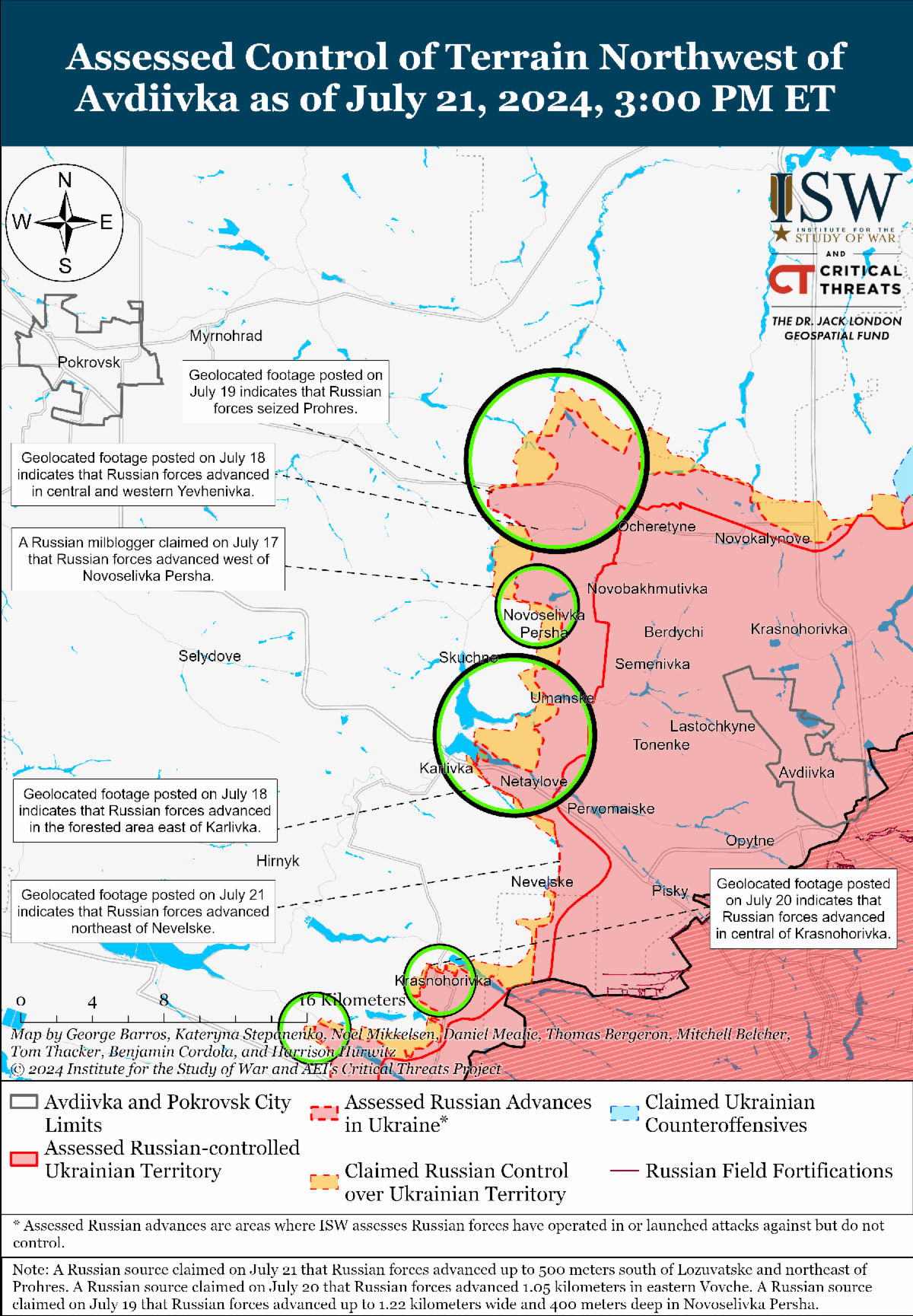Russian State Duma Chairperson Vyacheslav Volodin recently visited Nicaragua and Cuba, likely as part of ongoing Kremlin efforts to project its influence in the Western hemisphere and rally states against the US and the West. Volodin met with Nicaraguan President Daniel Ortega and Vice President Rosario Murillo in Managua, Nicaragua on July 20 and relayed a message from Russian President Vladimir Putin stating that Russo-Nicaraguan relations are "developing dynamically" and that the two states' coordination efforts in international affairs are "yielding good results." Ortega condemned Western sanctions against Russia and reiterated Kremlin narratives claiming that NATO support for Ukraine is aggravating the war. Volodin met with Cuban President Miguel Diaz-Canel in Havana, Cuba on July 21 and relayed a similar message from Putin that Russo-Cuban relations are "developing dynamically." Diaz-Canel thanked Russia for its support to end the US blockade against Cuba. Volodin told journalists on July 21 that the Russian State Duma will send observers to the Venezuelan presidential election on July 28. Russia has increasingly been trying to demonstrate its influence in the Western hemisphere, including by signing a memorandum of understanding with Venezuela aimed at countering "coercive measures" and conducting naval exercises near and port calls to Cuba and Venezuela in June 2024. Cuba and Nicaragua were also notably among the eight Russian "ally" states that voted against a recent United Nations (UN) General Assembly resolution demanding that Russia withdraw its forces from the occupied Zaporizhzhia Nuclear Power Plant (ZNPP) and return the plant to full Ukrainian control. Cuba, Nicaragua, and Venezuela have recently expressed interest in joining BRICS, and Putin has recently identified BRICS as a pillar of his envisioned "Eurasian security architecture" that is aimed at undermining NATO.
Volodin's visits to Nicaragua and Cuba immediately followed Belarusian Prime Minister Roman Golovchenko's visits to Venezuela, Cuba, and Nicaragua, during which Golovchenko signed multiple bilateral economic and trade agreements, possibly as part of Russian schemes that use Belarus to help Russia evade Western sanctions. Golovchenko visited Venezuela from July 14 to 16 and met with Venezuelan officials, including Venezuelan President Nicolas Maduro. Golovchenko stated that his visit aimed to discuss trade and the economic sphere and expressed Belarus' unwavering support for Maduro. Golovechenko also visited Cuba from July 16 to 17, during which he signed contracts worth "millions of dollars" to supply unspecified Belarusian goods to Cuba in exchange for Cuban exports to Belarus. Golovchenko visited Nicaragua from July 18 to 19 and signed contracts worth $85 million aimed at bilateral economic cooperation, including the Belarusian Development Bank's agreement to finance the delivery of more than 700 pieces of unspecified equipment to Nicaragua. Belarus may provide goods, equipment, or technology to Nicaragua, Venezuela, and Cuba in exchange for goods that Belarus and/or Russia cannot themselves acquire due to Western sanctions.
Key Takeaways:
- Russian State Duma Chairperson Vyacheslav Volodin recently visited Nicaragua and Cuba, likely as part of ongoing Kremlin efforts to project its influence in the Western hemisphere and rally states against the US and the West.
- The Georgian State Security Service (SUS or SSSG) reportedly recently summoned several Georgian citizens, who had served as volunteers alongside Ukrainian forces, for questioning on charges of "conspiracy to overthrow the government" and "terrorism."
- Geolocated imagery confirms that a Ukrainian drone strike damaged infrastructure at the Millerovo Airbase in Rostov Oblast overnight on July 19 to 20.
- Russian forces recently advanced near Avdiivka.
- Russian forces conducted missile and drone strikes against Ukraine overnight on July 20 to 21.
- Russian federal subjects are intensifying non-standard monetary incentives for contract service with the Russian military.
| 




 [ISW] 이스라엘-하마스 전쟁(이란) 업데이트, 2024년 7월 21일
[ISW] 이스라엘-하마스 전쟁(이란) 업데이트, 2024년 7월 21일